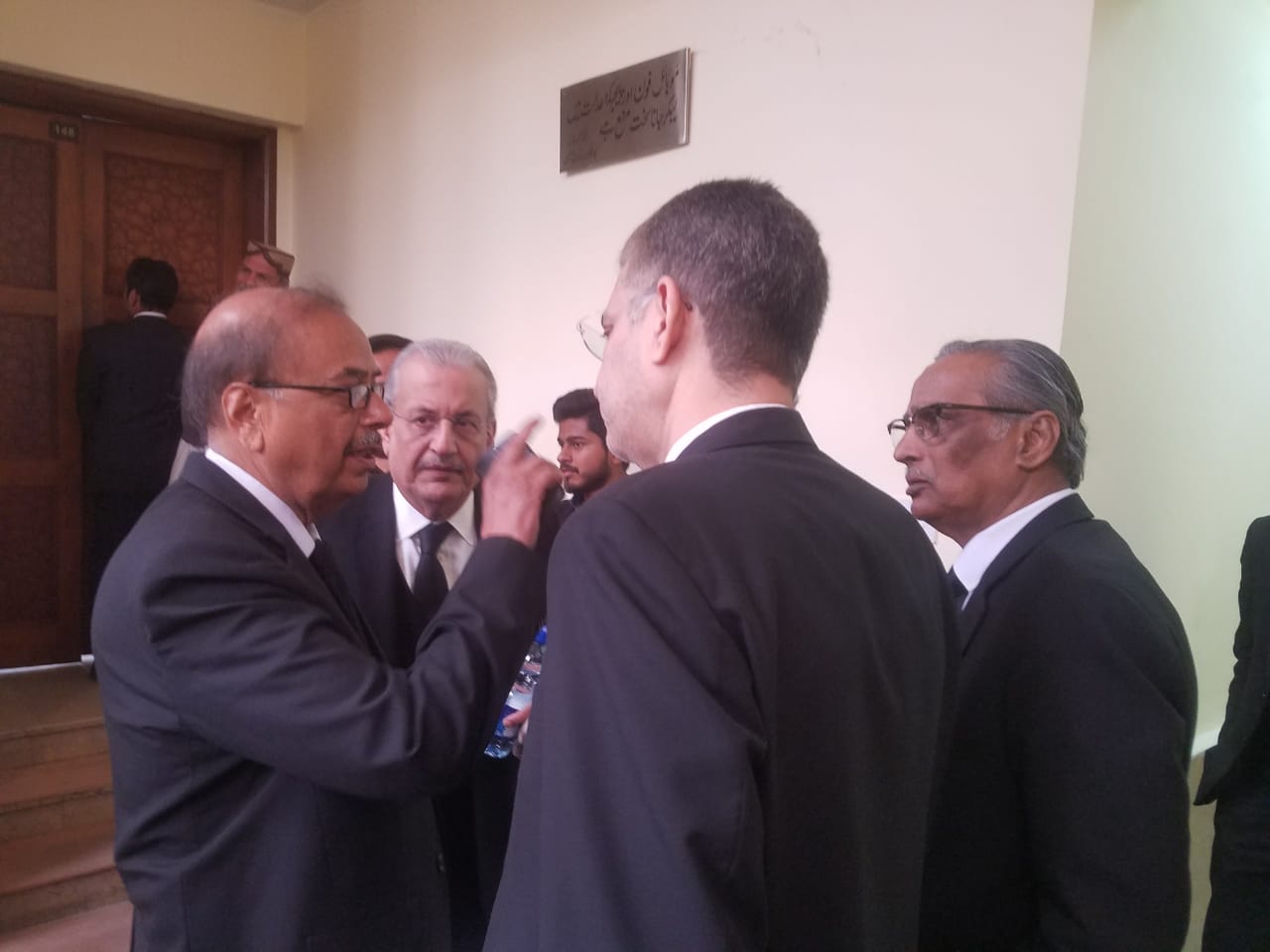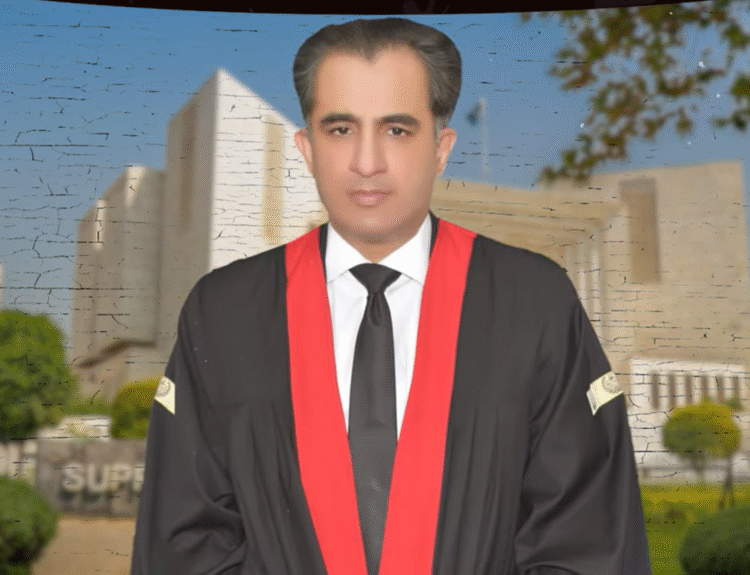By Khalid Hussain —
Tables appear to be turning upon the government as Raza Rabbani thundered on in the full court hearing the constitutional petition by Justice Qazi Faez Isa today asserting no one including the Prime Minister and the President has the constitutional power to order an inquiry to investigate a judge of the superior court.
The full court is led by Justice Umar Ata Bandial. Other members of the full court include Justices Maqbool Baqar, Manzoor Ahmed Malik, Faisal Arab, Mazhar Alam Khan Miankhel, Sajjad Ali Shah, Mansoor Ali Shah, Munib Akhtar, Yahya Afridi and Muhammad Qazi Amin Ahmed.
Responding to a question yesterday by Justice Manzoor Ali Shah on the 10-member full court, Rabbani today opened his arguments by first explaining that the Privy Council referred in the Government of India Act, 1935 means the “Judicial Committee of the House of Lords” in the United Kingdom. “When it hears appeals from the common wealth, the committee is referred to as the privy council”, he explained.
Author of the 18th Constitutional Amendment to the Constitution of Pakistan, Rabbani is representing the Sindh Bar Association (SBA). Judges on the bench asked many questions and some entered into active debates with the learned counsel. Justices Munib Akhtar and Faisal Arab took terms berating him on the need of the executive to ascertain the veracity of complaints received against judges of the superior judiciary. However, Rabbani stuck to his guns arguing that the executive authority was limited to “collection” of information and evidence and that even the President cannot authorize an inquiry on his own. He posited that Article 209 of the constitution protects the tenure of the judges of the superior judiciary and the role of the President is limited to sending a reference to the Supreme Judicial Council (SJC) that has the sole and exclusive authority to order an inquiry after satisfying itself under rules that a prima facie case may exist against the judge.
Justice Munib Akhtar took exception to his line of argumentation and asked repeated questions stressing that the constitution allows “collection” of information and evidence to the executive and the President can authorize an inquiry before sending a reference to the SJC. Raza Rabbani strongly disagreed and the had many quick and high pitched exchanged with the judge. Rabbani held that “Collection” did not warrant an inquiry and referred to the Black’s Law dictionary drawing distinctions between “collection of information” with “inquiring into the matter”. “We differ on this point my lord”, Rabbani said with a soft firmness that made the matter rest for the time being.
Justice Faisal Arab argued that an inquiry is warranted by the executive and the President may authorize the same to ascertain the veracity of facts contained in a given complaint against a judge of the superior judiciary. Rabbani referred to Article 47 of the constitution to illustrate that the role and authority of the President under Article 209 must follow the scheme of the constitution as obtains in the process of impreachment of the President when the Chairman Senate or the Speaker of the National Assembly can only send the motion to the Parliament and cannot order an inquiry themselves. Similarly, the President must send the reference to the SJC that shall inquire into the matter under rules, Rabbani argued.
Rabbani argued that if you follow the scheme of the constitution then there is no preference accorded to the reference sent by the President to the Supreme Judicial Council as it must be treated just another source of information by the SJC. Illustrating his argument he explained that following SJC rules, the CJP sends the Reference for assessment to the next senior member to see if the complaint warranted further action. It is for that judge to decide whether or not the reference has a prima facie case. He asked with suitably dramatics, “What happens if the judge finds there is no prima facie case that could be made against the judge? That makes it clear that the reference from the President is to be treated like it is just another source of information and is not accorded any more import compared to other complaints received by the SJC”, he added.
Jusrice Mushir Alam observed that the President did not authorize any inquiry into the matter before sending the reference against Justice Qazi Faez Isa to the SJC. Rabbani responded that the inquiry was undertaken at a much lesser level than that of the Prime Minister or the President which makes it illegal and without any standing in law. He argued that the settled principle of law is that no unconstitutional action can have any veracity whatsoever and the entire edifice of the reference must be rejected as illegal.
Justice Umar Ata Bundial was also of the opinion that in order to make Article 209 “workable”, there has to be some mechanism to verify the content of a complaint against a judge of the superior judiciary. In his opinion, the President may authorize an inquiry into the matter before sending the reference to the SJC. Rabbani responded that the genesis of the constitution in efforts to weed out the dichotomy of powers between the parliament and the head of the state, the history of the independence of judiciary is clear that any authorization for an inquiry against a judge of the superior judiciary will “open the floodgates against the spirist of Article 209 as it protected the tenure of the judges”.
In support of his arguments, he referred to the process of appointment of the judges under Article 175- of the constitution pointing out it has no role for the Prime Minister (PM). He said when the PM has no role in appointing the judges, he cannot have any role in their removal either. “The role of the PM in the appointment of the judges is reduced to that of a post office”, he said.
The full court adjourned till tomorrow. Raza Rabbani will conclude his argument early tomorrow and then senior counsel former President Supreme Court Bar Association Rasheed A. Rizvi will argue his Petition.




